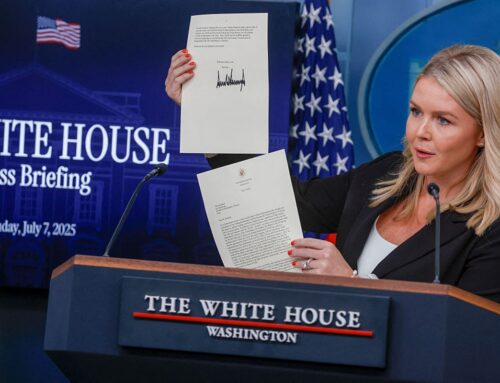Police finally wake up to the dangers of cannabis
July 7, 2025
Police finally wake up to the dangers of cannabis
MELANIE PHILLIPS
From psychosis to birth defects, the devastating effects of marijuana show it’s far from a ‘soft drug’
Is the smoke finally starting to clear over cannabis? Three of Britain’s police chiefs have called on officers to crack down on use of the drug. Sir Andy Marsh, head of the College of Policing, has said that in his community children are too frightened to use the bus stop “because it always stinks of cannabis” and that if he himself smells it while walking through a town, city or even a village centre it makes him feel unsafe too.
This is because he knows that cannabis is overwhelmingly associated with crime and disorder.
Two weeks ago, 14 police and crime commissioners called for cannabis, currently a class B drug, to be upgraded to class A and said it was more harmful to society than heroin. They pointed out that Portugal has been forced to consider reversing its policy of drug decriminalisation after a 30-fold increase in cannabis-related psychosis. The drug, they said, had devastating effects with more associated birth defects than thalidomide, the morning sickness drug that caused deformities among thousands of babies in the 1950s and 1960s.
Some of us may be forgiven for rubbing our eyes. For years, a handful of campaigners, scientists and journalists were mocked and insulted for arguing that the liberal orthodoxy on cannabis was the road to ruin. And it really was an orthodoxy. Drug charities, members of the Commons home affairs select committee, liberal academics and the media all agreed that cannabis wasn’t a serious threat to anyone. The problem was said to be not cannabis but the law that criminalised its use.
The proper way forward was therefore thought to be “harm reduction”, which held that it was pointless to use the law to try to suppress use of the drug; instead, efforts should be made to mitigate its damaging effects by, for example, telling users not to mix it with tobacco and not to hold the smoke in their lungs. The police fell in with all this. They largely turned a blind eye to cannabis and instead went after cocaine, heroin and other “hard” drugs.
In vain, our beleaguered little band argued that harm reduction made the problem far worse by tacitly encouraging use of the drug. In vain, we pointed out the copious evidence of the damage cannabis did to the brain, particularly from the extremely strong type called “skunk” that was prevalent in Britain. In vain, we reported the evidence that cannabis use often increased aggression and was implicated in violent deaths, from road accidents to murder.
All this was scornfully dismissed. Cannabis was said to be no worse than alcohol and it was as pointless trying to ban it as prohibition had been in 1920s America.
This dogma was driven by George Soros’s Open Society movement, which dominated the drug policy world and set out to undermine the UN drug conventions that commit member nations to try to eradicate the use of narcotics. It was also driven by the great and the good who dominate public policymaking and who didn’t want their own children to get criminal records.
As a result, three in four people caught with cannabis last year were let off with informal warnings or by promising not to do it again. The mayor of London, Sir Sadiq Khan, has gone further in backing decriminalisation of possession of small amounts of the drug. Yet the associated harms have now reached critical mass. Sir Robin Murray, a professor of psychiatry, has said the UK may now be “at the beginnings of an epidemic of cannabis-induced psychosis” which could overwhelm mental health services.
There’s now a long list of violent attacks in which cannabis has been implicated. Marcus Monzo, who was jailed last month for killing a 14-year-old boy as part of a 20-minute sword rampage through London’s streets, had been in the grip of a cannabis-induced psychosis.
In America, where at least 24 states have legalised recreational marijuana and found similar results, buyers’ remorse is increasingly setting in. In Oregon, polling two years ago revealed that nearly 60 per cent wanted to repeal the law decriminalising drugs that they had voted to enact less than three years previously.
Now the British police appear to be joining the dots. Sir Stephen Watson, chief constable of Greater Manchester police, said officers mustn’t ignore the low-level “little” things such as cannabis that actually make people feel unsafe. This reflects the “broken windows” theory of policing, that ignoring low-level disorder sends both an obvious and subliminal message that authority is absent and so you can get away with anything.
There needs to be similar “broken windows” messaging about narcotics themselves. The division between soft and hard drugs is deeply unhelpful. The fact that some drugs are more dangerous than others misses the point. All drugs are dangerous. That’s why they’re illegal. Current laws that divide them into “soft” and “hard” undermine that key message.
For a brief period years ago, Sweden got this point and abolished that distinction, seeing as a consequence a drop in all drug use before the policy was changed back under pressure from the global liberal consensus.
In Britain, the hard/soft distinction needs to be abolished in order to correct the disastrously muddled social signalling. The police returning to reality is a promising start. But they’ll have their work cut out to persuade a liberal establishment that still persists in its dopey haze.
Search
RECENT PRESS RELEASES
Related Post








